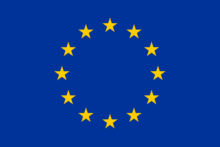The European Union faces constantly evolving migratory challenges that require a notable effort on the part of its institutions to manage a significant flow of irregular migrants and asylum seekers. Meanwhile, its member states strive to integrate its newcomers into their societies. These challenges have had a major impact on both the domestic and external policies of the individual European states, on the relations among them, and on their relationship with the European Union.
Working in collaboration with the EU’s Erasmus+ Program, the University of Toronto is offering the course “The EU and the Politics of Migration” during the period 2016-2019. The course addresses the role of the European institutions in the management of the migration phenomenon: regular and irregular migration flows, the asylum-seeker crisis, the dilemmas of social integration, the main European policy tools and decisions, the impact of migration on the freedom of movement and on the EU’s foreign policy, and the repercussions of these issues for the relations among the EU’s member states and for domestic politics. This page will showcase a selection of research papers written by students along with other materials on migration and the European institutions.
In addition, this page will feature work emanating from our Erasmus+ Projects, namely two conferences on the topic of European Union policy on asylum and refugees. These Projects aim to inform Canadian scholars, graduate students, policy-makers, and opinion leaders about EU policy on asylum as well as to engage in exchange of ideas through discussion and reflection on this issue.
